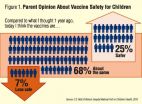(Press-News.org) A study of 311 patients by The University of Manchester has found that it may be possible to predict early which rheumatoid arthritis (RA) patients will fail to respond to the biologic drugs given to treat them. These findings could help better manage patients' symptoms.
RA is a chronic disease which affects up to 1.5% of the population. It is a significant health burden for patients, who can experience pain, reduced mobility and premature death unless they receive effective treatment.
Biologics are a relatively new form of treatment for RA. Given by injection, they work by stopping particular chemicals in the blood from activating the immune system and attacking the joints. Biologics are usually given in combination with an anti-rheumatic, such as methotrexate, once the anti-rheumatic alone is no longer effective.
Biologic drugs have dramatically improved the long-term health of people with severe RA, reducing symptoms as well as joint damage and disability. However, in about one in five patients the treatment stops working after a few months - sometimes as a result of anti-drug antibodies being formed - limiting their effectiveness.
In order to detect the antibodies and to measure the drug levels in the bloodstream, previously it was thought that the testing to detect the anti-drug antibodies and measure drug levels in the bloodstream, would only be helpful if performed immediately before the next dose of drug was due, when the drug levels are at their lowest in the body.
This approach can be difficult to arrange in a clinical setting, as patients take the drugs on different days and at different times.
The new study, funded by the Medical Research Council, Arthritis Research UK and the NIHR Manchester Musculoskeletal Biomedical Research Unit, shows that testing at random times is also effective and makes it easier to use in a clinical setting.
Dr Meghna Jani, lead author of the work from the University's Centre for Musculoskeletal Research, said: "Our study demonstrates detecting low drug levels in rheumatoid arthritis patients on adalimumab, one of the most commonly prescribed biologics, was the strongest factor associated with non-response to treatment over 12 months.
"This test is easy to perform in a hospital setting, and could provide useful information on how to manage a patient whose rheumatoid arthritis is not being controlled by adalimumab."
There were 311 patients included in the study, who provided blood samples for testing at three, six and 12 months after starting two different types of biologic drugs, adalimumab. The research revealed that a total of 25% of patients on adalimumab developed antibodies, but none were found in the patients using etanercept.
The researchers also found that higher doses of methotrexate, a drug often given together with the biologic treatment, was associated with lower levels of drug antibodies, suggesting that patients should be encouraged to continue methotrexate at the highest dose they can tolerate, to reduce the risk of developing anti-drug antibodies.
Professor Anne Barton, a consultant rheumatologist at Central Manchester University Hospitals NHS Foundation Trust and Director of the Centre for Musculoskeletal Research at The University of Manchester explained: "The next step will be to explore whether it is cost-effective to use these tests routinely in clinical practice, so that we can adjust treatments in those patients with low drug levels and anti-drug antibodies."
The paper, 'Clinical Utility of Random Anti-TNF Drug Level Testing and Measurement of Anti-Drug Antibodies on Long-Term Treatment Response in Rheumatoid Arthritis', was published in the journal
Arthritis and Rheumatology.
INFORMATION:
Pursuant to the Act on the Reform of the Market for Medicinal Products (AMNOG), the German Institute for Quality and Efficiency in Health Care (IQWiG) reassessed fingolimod (trade name: Gilenya), a drug for the treatment of adults with highly active relapsing remitting multiple sclerosis (RRMS). The Federal Joint Committee (G-BA) had limited its decision on the first assessment from 2012 to three years because it considered the certainty of the data as insufficient. This obliged the drug manufacturer to submit a second dossier.
It did not submit any new studies, but reanalysed ...
Scientists believe that a simple two-hour emotional awareness course aimed at making young offenders less aggressive could hold the key to significantly reducing the seriousness of their future crimes.
In the first ever study of its kind, psychologists from Cardiff University recorded a 44% drop in the severity of crimes committed by persistent reoffenders, six months following the completion of a course designed to improve their ability to recognise other people's emotions. The findings are published today in PLOS ONE journal.
Much has been published previously to ...
ITHACA, N.Y. - To protect consumers from foodborne illness, produce farmers should wait 24 hours after a rain or irrigating their fields to harvest crops, according to new research published in the journal Applied and Environmental Microbiology.
Rain or irrigation creates soil conditions that are more hospitable to Listeria monocytogenes, which when ingested may cause the human illness Listeriosis. Waiting to harvest crops reduces the risk of exposure to the pathogen, which could land on fresh produce.
Cornell scientists, along with other agricultural researchers from ...
Astronomers have found evidence for a large population of hidden supermassive black holes in the Universe.
Using NASA's Nuclear Spectroscopic Telescope Array (NuSTAR) satellite observatory, the team of international scientists detected the high-energy x-rays from five supermassive black holes previously clouded from direct view by dust and gas.
The research, led by astronomers at Durham University, UK, supports the theory that potentially millions more supermassive black holes exist in the Universe, but are hidden from view.
The findings are being presented at the ...
For cell division to be successful, pairs of chromosomes have to line up just right before being swept into their new cells, like the opening of a theater curtain. They accomplish this feat in part thanks to structures called centrioles that provide an anchor for the curtain's ropes. Researchers at Johns Hopkins recently learned that most cells will not divide without centrioles, and they found out why: A protein called p53, already known to prevent cell division for other reasons, also monitors centriole numbers to prevent potentially disastrous cell divisions.
Details ...
Richland, Wash. -- Despite decades of industrial use, the exact chemical transformations occurring within zeolites, a common material used in the conversion of oil to gasoline, remain poorly understood. Now scientists have found a way to locate--with atomic precision--spots within the material where chemical reactions take place, and how these spots shut down.
Called active sites, the spots help rip apart and rearrange molecules as they pass through nanometer-sized channels, like an assembly line in a factory. A process called steaming causes these active sites to cluster, ...
Anti-inflammatory drug is one thousandth of the cost of the current drug which works in the same way
Discovery may open up cost effective treatment options not just for the NHS but also cancer patients across the world
Scientists at the University of Sheffield have discovered that a common drug given to arthritis sufferers could also help to treat patients with blood cancers.
Myeloproliferative neoplasms (MPN) are diagnosed in around 3,300 UK patients every year and cause an overproduction of blood cells creating a significant impact on quality-of-life, with symptoms ...
ANN ARBOR, Mich. -- Over the same time period that multiple outbreaks of measles and whooping cough made headlines around the country, parents' views on vaccines became more favorable, according to a new nationally-representative poll.
The University of Michigan C.S. Mott Children's Hospital National Poll on Children's Health asked parents in May how their views on vaccinations changed between 2014 and 2015 - during which two dozen measles outbreaks were reported in the U.S., including a multi-state outbreak traced to Disneyland.
One-third of parents who participated ...
A spider's web is one of the most intricate constructions in nature, but its precious silk has more than one use. Silk threads can be used as draglines, guidelines, anchors, pheromonal trails, nest lining, or even food. And each use requires a slightly different type of silk, optimized for its function.
"Each type of silk has similar proteins, but they are synthesized differently," said Sinan Keten, assistant professor of mechanical and civil engineering at Northwestern University's McCormick School of Engineering. "Then the spider knows how fast to reel the silk to get ...
An ambitious policy package is essential for the UK to transform its energy system to achieve the deep reductions in carbon emissions required to avoid dangerous climate change, according to research led by UCL scientists. To meet climate targets set for 2050, policies need to ensure strong action is taken now, while preparing for fundamental changes in how energy is provided and used in the long term.
The study is part of the Deep Decarbonization Pathway Project (DDPP) which is coordinated by the Institute for Sustainable Development and International Relations (IDDRI) ...



